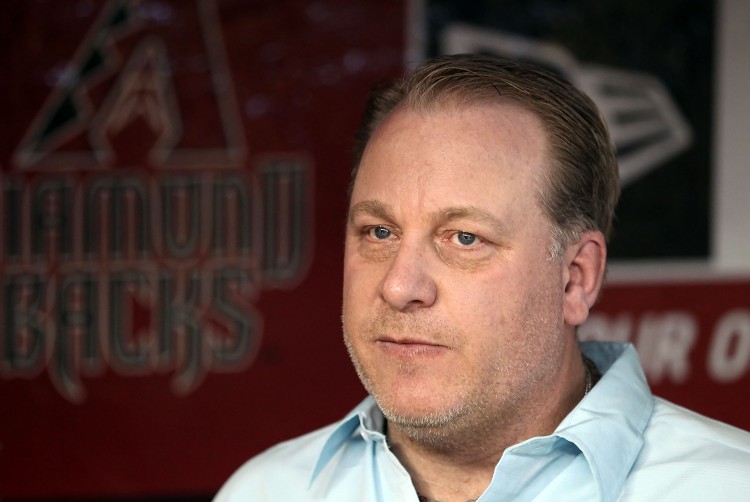NEW YORK—The bankruptcy of former Major League Baseball pitcher Curt Schilling’s video game development company—38 Studios LLC—is raising questions over whether public dollars should be used to fund private enterprises.
At issue is the amount of public taxpayers’ funds used to guarantee the company’s debt. A loan guarantee to 38 Studios was $75 million from Rhode Island Economic Development Corp. (RIEDC) in 2010, in an effort by the state to lure the company from its headquarters in neighboring Massachusetts.
In return, 38 Studios promised to bring almost 500 new jobs to Rhode Island.
On May 13, Rhode Island state authorities said that 38 Studios missed a scheduled $1.12 million interest payment on its loan. The company’s finances were believed to be in doubt after it had missed payroll in the same week.
However, on May 18, Rhode Island Gov. Lincoln Chafee announced that the loan interest had been paid, by a $1.02 million check from the company and another personal check of $100,000. The source of the personal check was not identified.
A week later, on May 24, all employees were laid off. Two weeks later, on June 7, the game studio filed for bankruptcy protection.
The Providence, R.I.-based 38 Studios lists assets of around $22 million, and total liabilities of around $151 million. An affiliated company, 38 Studios Baltimore, owes $121 million and has assets of around $335,000.
Assuming no other assets are added to the bankruptcy, Rhode Island taxpayers are on the hook for around $115.9 million in loan principal, interest, and fees, resulting from the state’s loan guarantee.
Further complicating the case, and raising questions over the manner in which the state-backed loan was vetted, were revelations late last week that a high-ranking state official had asked for a position at 38 Studios merely weeks after the loan guarantee was signed. Public records obtained by AP indicated that J. Michael Saul, managing director of financial services at RIEDC, asked 38 Studios’ chief financial officer for a job at the company. At his position, Saul would have overseen bond financings and state-guarantees of private loans. It was unclear whether he ever worked at 38 Studios.
The company isn’t the first enterprise to go bankrupt after obtaining favorable loans backed by the government. One high-profile example is California-based solar energy firm Solyndra, which went bankrupt years after receiving a $535 million loan guarantee from the U.S. Department of Energy.
Solyndra received the money as part of President Barack Obama’s federal stimulus program to assist companies in renewable energy industries. Solyndra filed for bankruptcy in 2011 and more than 1,000 workers lost their jobs.
Solyndra’s failure—and the bankruptcies of other companies receiving government aid—has cast doubt over the role governments should have in assisting private businesses. Some argue that enterprises requiring such loans or guarantees have innately unsound business models or are in untenable industries to begin with. Otherwise, there is no need for public assistance, and funding could be obtained from banks in the same manner as other business startups.
State Audit Issues
According to state emails obtained by AP last week, access to financial records had been delayed as RIEDC attempted to audit 38 Studios.
The company told auditors hired by RIEDC that it did not have the personnel or financial resources to grant them access to the documents—after having let go of most employees. After rounds of emails and days of delays, in the end it was unclear whether access was finally granted, according to an AP report.
“Nothing was forthcoming. There were so many mixed messages. Everything kept changing,” Gov. Chafee said.
Chafee had originally opposed the deal by RIEDC to guarantee 38 Studios’ loan, but was a supporter later on after the company promised to bring hundreds of jobs to the state in a depressed job market.
Schilling Family Defends Company
Schilling and his wife went on Facebook to defend recent actions of 38 Studios and criticized the state government’s communications and procedures during the period.
Schilling’s wife Shonda wrote on her Facebook wall. “My husband so distraught he couldn’t function ... NOT because he had lost it all but because that team worked SO hard and believed in what they were doing.”
Schilling defended his company as well, stating in a Facebook post that 38 Studios backed up all documents and did not “stonewall” the government’s efforts to obtain information, contrary to Chafee’s comments to reporters.
Schilling also criticized the very public manner of communication from the state government, as Chafee held frequent press conferences regarding the situation of the company after its finances were in doubt, which further hurt the company from a reputation perspective. The government countered that as millions of dollars in taxpayer funds were at stake, the public deserved transparency.
Despite the public back and forth, a bankruptcy judge will likely have final say. The bankruptcy trial of 38 Studios is scheduled to begin on Tuesday in Wilmington, Del., where the company is registered.
Schilling, a former All-Star starting pitcher for the Arizona Diamondbacks and Boston Red Sox as well as video-game enthusiast, founded Green Monster Games in 2006. Green Monster was later renamed to 38 Studios—the number Schilling wore during the latter portion of his baseball career.
Schilling is said to have invested $50 million of his own money into 38 Studios, which mainly focused on developing role-playing and massively multiplayer online role-playing games (MMORPG). The company’s only finished product was 2012’s “Kingdoms of Amalur: Reckening,” a role-playing, strategy game.
The Epoch Times publishes in 35 countries and in 19 languages. Subscribe to our e-newsletter.





